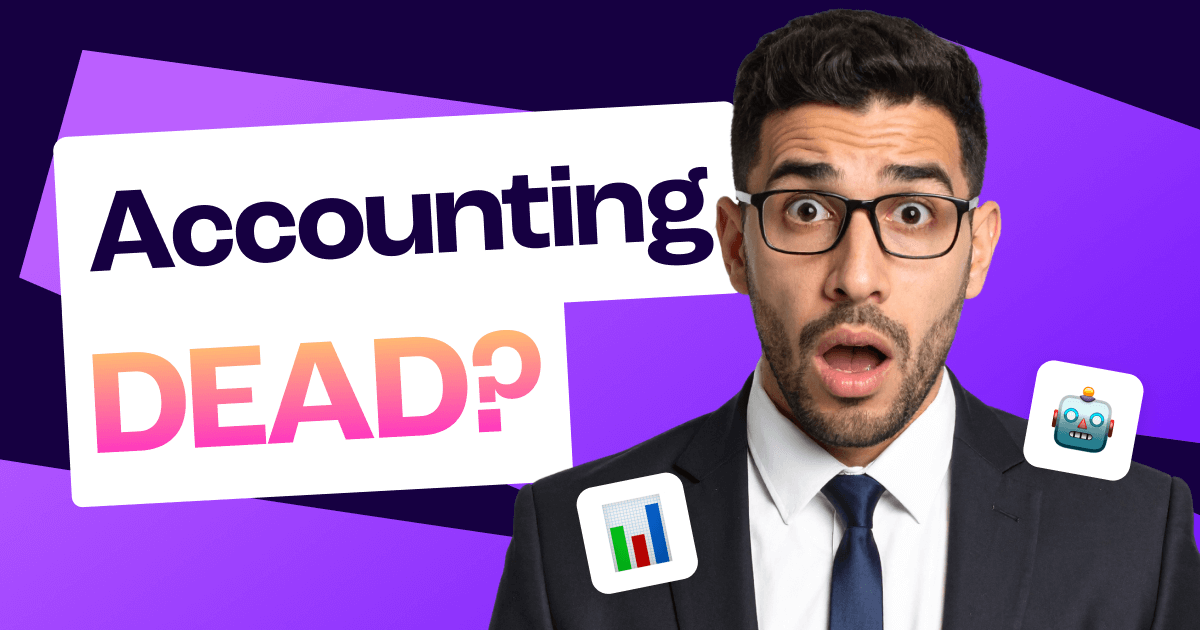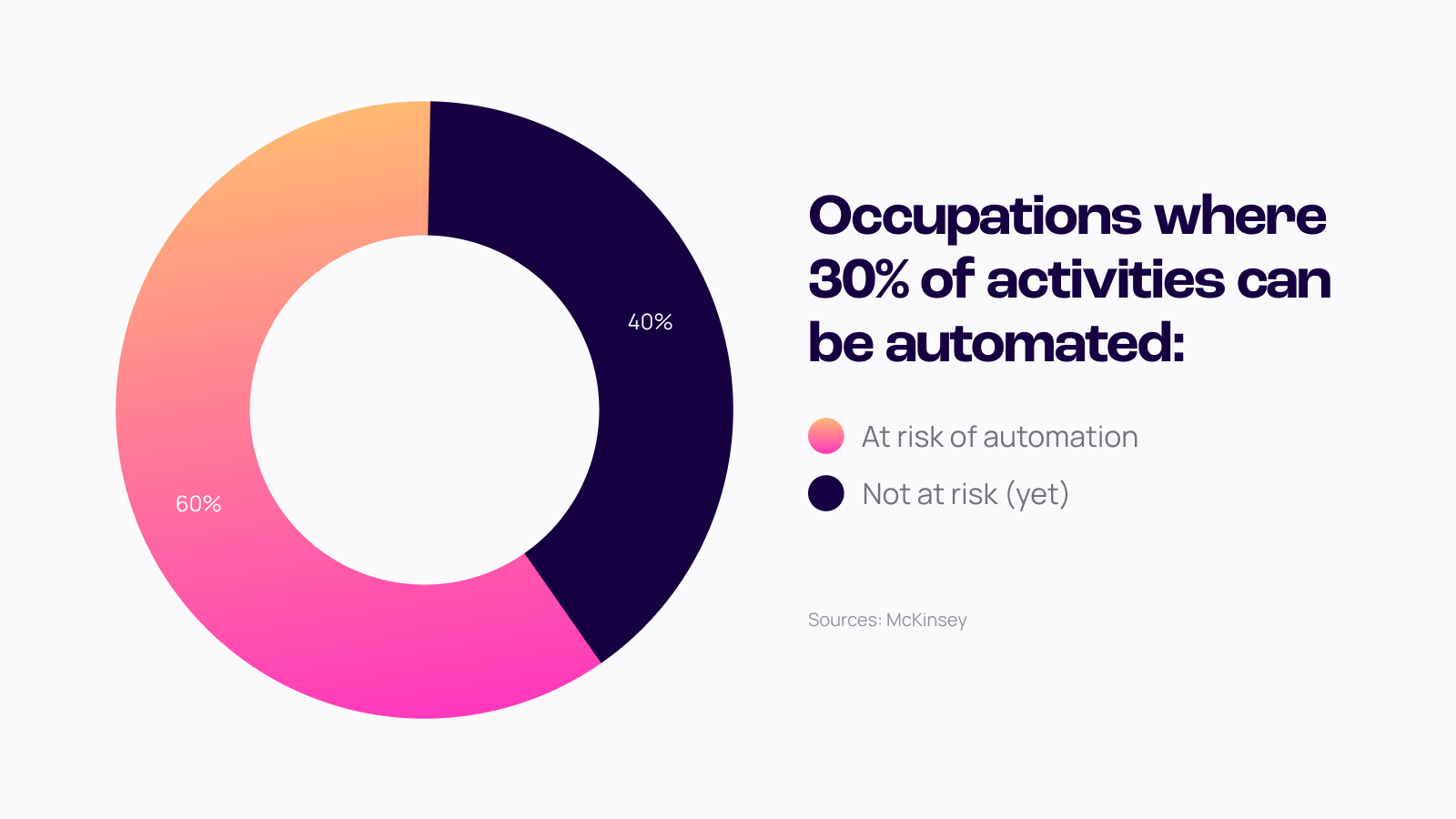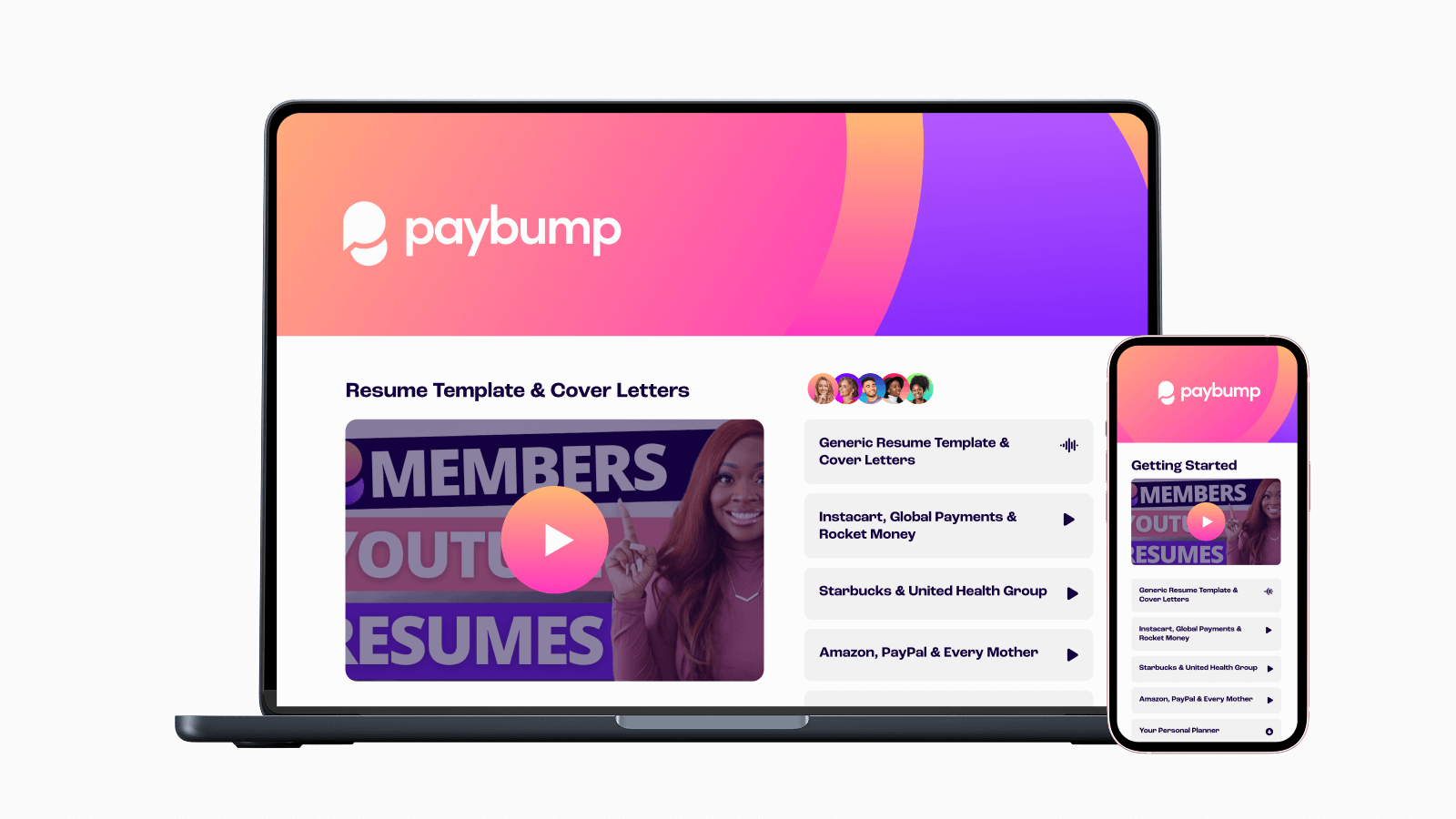
Will AI Replace Finance Jobs? AI Is Killing Accountants…
Artificial intelligence (AI) isn’t just creeping into finance anymore—it’s taking the express elevator.
From invoice processing to risk modeling, automation and AI technology is reshaping the profession faster than most training budgets can keep up. That raises a blunt question: will AI replace accountants and finance jobs?
The honest answer is yes, many roles will be replaced by AI to automate routine tasks - essentially anything that is repetitive, rules-based, and data-heavy.
But the bigger story is about job redesign.
The mix of tasks inside most finance roles is changing: low-value, repetitive tasks are shrinking while higher-value advisory, strategic decision, and judgment work expands.
The question isn’t whether AI will enter your job—it already has. The only real question is whether you’ll steer it, or let it steer you?
The Rise of AI Systems in Finance Roles
In 2025, CFOs and controllers aren’t just buying new software—they’re re-architecting finance into a human + machine operating model. AI handles ingestion, classification, reconciliation, and anomaly detection at machine speed; people own ethics, strategy, client trust, and final decisions.
Rather than wait to see where the chips fall, you can take control: learn where automation is strongest, pivot toward the human edge, and use Paybump’s tools to package your skills for the roles hiring now.
This guide breaks down the real risks (and opportunities), shows what finance jobs will be replaced by AI or reshaped, and maps out finance jobs that will not be replaced by AI. Along the way, we’ll cite credible stats and give you pragmatic next steps to protect—and grow—your career.
How AI Is Reshaping the Finance Sector
Across the back office and the client front line, AI has moved from pilot to production, with tools in play across all areas of finance:
- Robo-advisors rebalance simple portfolios automatically.
- Fraud detection models monitor transactions and flag unusual activity in real time.
- Chatbots answer routine account questions and route complex cases to human agents.
- AP/AR automation extracts invoice data, checks for duplicates, and posts clean entries
- Close automation powers continuous reconciliations and smarter variance analysis
- Narrative report generators draft board-ready write-ups from structured data.
AI isn’t magic—it’s statistics plus scale—but the compound impact on speed and quality is obvious. Close checklists get shorter, reconciliations run continuously instead of in bursts, and variance questions reach decision-makers faster because financial data collection happens in the background.
🤖 Automation of routine work
Expect continuous gains in bookkeeping, reconciliations, close activities, and reporting. Leading AP suites report large time savings; for instance, Sage Intacct says intelligent extraction and duplicate flagging can speed invoice processing by up to 80%.
That’s not a small tweak—that’s a different day. When the machine does the capture, humans focus on exceptions, vendor issues, and cash-flow strategy rather than field-by-field data entry.
🏎️ Adoption momentum
Surveys through 2024–2025 show rapid uptake across finance functions. Gartner reported that 58% of finance teams were using AI in 2024, up sharply from the year prior—evidence that AI has crossed the experimentation phase into daily operations.
Regulators and central banks note the same trend: near-term deployments cluster around internal process optimization, customer support, and fighting financial crime, where the ROI is clearest and the risks can be governed with strong controls and model oversight.
✨ A concrete before/after
If you want a single “aha,” look at Contract Review. JPMorgan’s COiN system can analyze thousands of agreements in seconds, saving hundreds of thousands of human hours per year on routine document work. The downstream effect hits credit operations, risk, and even finance reporting timelines.
Pros of AI in Accounting and Finance
- Speed and accuracy: Machine-readers don’t get tired. Properly configured models reduce keystrokes, copy-paste errors, and rework. Teams report faster closes and fewer reconciliation surprises.
- More time for strategy: When the “prep” work is automated, analysts can spend more cycles on scenario planning, sensitivity analysis, and partnering with the business.
- Better fraud detection and compliance: Algorithms excel at spotting patterns humans miss, surfacing unusual vendors, round-dollar entries, and timing anomalies for review. Regulators are also nudging firms to explain and govern models—a good thing for data quality and control.
- Smarter, fairer decisions—if governed well: AI can help reduce inconsistent human judgment in areas like triaging audit risk or flagging underwriting outliers. But “fair” isn’t automatic; you need strong data governance and human oversight (more on that below).
- Cost savings and scalability: Automation compresses per-transaction costs and makes spikes—busy season, M&A integration, audit prep—far easier to absorb without adding headcount.
Cons of AI in Accounting and Finance
- Displacement of repetitive work: The first tasks to go are structured and rules-based: data entry, three-way match, basic reconciliations, and templated reporting. Entry-level learning by doing is shrinking.
- Data privacy and model risk: Finance handles sensitive records. Poor access controls or sloppy prompts can leak data. Black-box models also create headaches that auditors and regulators will not accept without solid documentation.
- Adoption costs: Smaller firms face upfront spend on tools, integrations, and change management. Without clean data and process discipline, AI just accelerates chaos.
- New fraud vectors: Deepfakes and synthetic identities raise the stakes; banks expect higher fraud losses without better defenses, which shifts work toward prevention, model monitoring, and agile controls.
Finance Jobs AI Is Likely to Replace
At-risk roles include those focused on routine variance commentary or basic KPI refreshes face the heaviest automation pressure:
- Bookkeepers
- Accounts payable/receivable clerks
- Payroll clerks
- Junior fund accountants
- Junior financial analysts
Why these roles?
AI shines where the rules are clear, the data is structured, and the output is predictable: extract this field, match that record, generate this standard report.
McKinsey estimates that while few jobs are fully automatable, about 60% of occupations have at least 30% of activities that can be automated—and finance is loaded with those activities. If you spend most of your week shuttling numbers between systems, the software is coming for that shuttle work first.

That doesn’t mean the whole role disappears; it means the entry-level portion morphs into exception handling, data quality, and stakeholder communication.
Beyond AP and close, contract analysis (e.g., JPMorgan’s COiN) shows how entry-level review work is shrinking in favor of exception handling and escalation. The same pattern plays out in loan files, expense audits, and KYC packs: AI assembles and screens; humans validate and decide.
Finance Jobs That Will Not Be Replaced by AI
Not every job in the finance sector is at risk of complete replacement…
🥊 Resilient roles
Financial advisors, controllers, CFOs, forensic accountants, internal auditors, and client-facing consultants remain durable. These jobs require judgment, ethics, communication, and trust—areas where human context matters more than pattern matching.
🔥 Why do they endure?
Clients don’t hire a spreadsheet; they hire a guide. Leaders synthesize noisy signals, balance risk and ambition, and persuade stakeholders. Advisory, fundraising, governance, and complex investigations all require human credibility and a view of the whole business, not just the cells in front of you.
🚨 Market signals
U.S. Bureau of Labor Statistics projections show strong growth for personal financial advisors—about 17% from 2023 to 2033—underscoring long-run demand for human counsel even as tools evolve.
✅ A quick salary reality check
Finance remains lucrative. The BLS reports a median annual wage around $99,000 for financial analysts (May 2023), with many roles scaling much higher based on industry and credentials.
10 Ways AI is Killing Finance Jobs
- Automating Data Entry and Bookkeeping. OCR and entity-resolution models capture invoice and receipt data, classify GL codes, and post entries automatically. What used to take hours of keystrokes now takes minutes of validation. For small firms, this eliminates the need for full-time data entry; for large firms, it trims entire tiers of manual processing.
- Streamlining Financial Reconciliation. Bank feeds, rules engines, and anomaly detectors match transactions and flag exceptions at scale. Month-end crunch becomes smoother—fewer “mystery” balances and faster sign-offs—reducing the need for large reconciliation teams and late-night fire drills.
- Replacing Junior Financial Analysts. Generative tools draft first-pass commentary, refresh charts, and tie out KPIs to drivers. Senior analysts still set the narrative, but the grunt work of building the first deck is fading. Early-career roles now skew toward data stewardship, stakeholder interviews, and storycraft, not spreadsheet gymnastics.
- Transforming Loan Processing. From KYC/AML to collateral review, models extract terms, score risk, and assemble files for underwriters. Humans adjudicate edge cases and handle client conversations, but the throughput gains shrink the need for large operations teams while raising the bar for the ones who remain.
- Powering Algorithmic Trading. Systematic strategies use ML to spot micro-patterns and respond in milliseconds—something a human can’t do. The people jobs shift toward strategy design, risk limits, model governance, and guardrails, not manual trade execution.
- Simplifying Tax Preparation. Classification models and entity rules pre-populate returns, spot missing documents, and check for common errors. Tax pros spend more time on planning and elections and less on assembly, which dampens demand for seasonal data-entry roles while rewarding specialists who can navigate complex scenarios.
- Enhancing Fraud Detection. Unsupervised learning flags outliers across payments, expense claims, and vendor behavior. Banks and fintechs increasingly lean on AI for real-time interdiction, reducing manual review queues and the junior headcount that once combed through alerts.
- Automating Payroll Processing. Time-capture plus anomaly detection reduces off-cycle fixes and manual adjustments. As systems learn patterns, they pre-empt errors before payday, shrinking the need for large payroll teams while heightening the importance of compliance knowledge for those who stay.
- Generating Financial Reports. Narrative engines assemble management reports from structured data, with source links and variance explanations. Finance still owns the story and the “so what,” but AI drafts the skeleton. Expect fewer roles built solely around report assembly.
- Handling Customer Service Inquiries. AI agents deflect common questions about bills, statements, and payment status, escalating only the exceptions or relationship-sensitive conversations. Support roles focus more on complex problems and upsell opportunities—work that requires empathy and commercial instincts.
Why Companies Are Transitioning to AI-Powered Finance
💰 Cost and scale
Automation reduces unit costs and absorbs spikes without hiring waves. It also strengthens controls by standardizing processes and logging decisions. Risk teams are a prime beneficiary: one industry survey found about 40% of banks reporting widespread use of AI for risk management, a sign that executives see measurable value in model-assisted oversight.
🤺 Competitive edge
Faster closes, earlier signals, and better forecasting turn finance into a real-time advisor. Surveys of CFOs show rising adoption for forecasting and decision support as leaders push for speed without sacrificing accuracy.
⚖️ The balancing act
With benefits come new duties: bias testing, access control, and vendor risk management. Regulators and central banks increasingly expect firms to govern model use, particularly in credit, trading, and fraud.
Companies Still Hiring Human Accountants in 2025
Global networks like PwC and Deloitte, plus product firms like Intuit and thousands of regional agencies, continue to hire.
Why?
Audit, assurance, complex tax, and public-company reporting demand human oversight, professional skepticism, and client trust—capabilities no model can substitute. The human touch cannot be overlooked even in finance!
Roles in high demand:
- Tax accountants with multistate or international experience
- Internal auditors with data analytics chops
- Financial consultants who can translate AI insights into board-ready recommendations
- Controllership pros who can rebuild processes around automation
Landing one of these roles couldn’t be easier with Paybump’s role-specific resume templates to highlight impact. Say things like: “Cut monthly close by 3 days by deploying AP automation and recon rules; reallocated 20% of analyst hours to scenario work.”
Download them all inside the Paybump portal!

Is It Worth Getting into a Finance Role in 2025?
Short answer: Yes—if you aim for the right part of the value chain and commit to continuous learning.
Pros:
- High earning potential. Financial analysts’ median pay sits near six figures in recent data, with upside via bonuses, certifications (CFA, CPA), and industry choice.
- Strategic stability. Advisory, audit, FP&A leadership, and governance roles remain essential as organizations lean on finance for choices about pricing, investments, and risk.
- Career leverage from AI. The pros who use AI—rather than compete with it—can 10x their throughput and own bigger portfolios of work.
Cons:
- Automation risk at the entry tier: Classic ladder steps—manual AP, basic reporting—are thinning out, so you’ll need a sharper entry plan.
- Upskilling tax: The field now expects baseline literacy in data, tools, and model risk.
- Competition: A-players from tech and data science are crossing into finance.
👀 Long-term outlook
Human-centric roles—especially personal financial advisors—show strong growth prospects this decade, reinforcing the idea that trust-intensive work persists even as automation expands.
🤔 How to decide
If you love data analysis, communication, and judgment under uncertainty, finance is still a great bet. If you prefer deterministic, heads-down tasks, plan to reskill quickly.
🪜 Action steps with Paybump
Use Paybump’s resume builder to show AI-readiness: list tools, quantify impact, and add a “Model Governance & Controls” bullet if relevant. Pair your application with our curated remote and hybrid finance job leads to get traction faster.
How Finance Professionals Can Leverage AI to Thrive
- Automate your grunt work: Connect bank feeds, build reconciliation rules, and let AP tools pre-code invoices—then spend your saved hours on analysis.
- Upskill on the tools that matter: Learn QuickBooks Advanced features and AI assistants, Xero analytics, Excel’s Python integrations, and your ERP’s automation hooks. Take a weekend to set up a sandbox and document what you learned.
- Own the human edge: Double down on client communication, ethics, cross-functional facilitation, and narrative finance. Machines surface signals; humans persuade action.
- Codify your playbooks: Write lightweight SOPs for your automations, including controls, fallback steps, and review cadences. Hiring managers love repeatable systems.
- Quantify, always: Translate your AI usage into business outcomes: “reduced DSO by 8 days,” “cut variance investigation time by 40%,” “flagged $250K in duplicate payments pre-issue.”
- Use Paybump to package it: Our templates, prompts, and interview frameworks help you surface the right stories—impact first, tools second.
Success Stories: Finance Pros Thriving with AI
Case study: Elena, Senior Accountant → Finance Automation Lead
Elena started in AP at a manufacturing firm. She piloted an invoice OCR tool, built duplicate-payment rules, and partnered with IT to push clean data into the ERP. Within two quarters, AP cycle time dropped by half and exception rates fell sharply. She documented controls, trained the team, and published a post-implementation review.
When FP&A needed faster variance insight, Elena created a lightweight pipeline to feed dashboards nightly from the ERP, then wrote a one-page SOP so the process was auditable.
Her CFO expanded the pilot to two other divisions and asked Elena to lead a small automation guild that sets standards for prompts, controls, and metrics.
Case study: Marcus, Advisory Analyst → Client-Facing Consultant.
Marcus used gen-AI to draft first-pass memos and models, then spent his saved time interviewing clients about pricing and retention drivers. He built a library of prompts for common analyses (cohort decay, LTV/CAC, pricing corridors) and paired automation with story-driven consulting.
One consumer-app client credited his work with a 3-point improvement in gross margin after he spotted discount-leakage patterns the team had missed. Another mid-market SaaS client used his retention forecast to redesign pricing tiers and cut churn by 12% in a quarter.

Marcus now mentors juniors on narrative skills and runs monthly brown-bags on how to pressure-test model outputs with clients.
Shared lessons
Both wins came from the same playbook: start with one painful workflow, automate responsibly, document controls, and measure outcomes. Then market the results—on your resume, in interviews, and inside your company. The goal isn’t to prove you can prompt an AI; it’s to prove you can change outcomes.
Launch Your Finance Career with Paybump
AI is changing the shape of finance work, but it hasn’t eliminated the need for human judgment, ethics, and trust. The roles most exposed are the ones built solely on repetition; the roles that thrive are the ones that blend data, narrative, and complex financial decision-making. If you reposition now, you won’t just survive the shift—you’ll be the person companies call to lead it.
Next steps with Paybump:
- Browse our finance resume templates tailored for AP/AR, audit, FP&A, and advisory.
- Use our AI-ready prompts to craft bullets that quantify impact and governance.
- Subscribe to the Paybump newsletter for weekly job leads and playbooks tuned for an AI-powered finance career.
The market is moving. With the right skills and a sharp story, you can move faster.
FAQs
Will AI replace finance jobs by 2025?
AI may automate roles like bookkeeping, but strategic jobs like financial advising are safe. Upskill to stay competitive in the evolving finance sector.
Will accountants be replaced by AI?
Routine accounting tasks face automation, but roles needing human judgment, like audits, remain secure, for now!
Will AI replace accountants by 2030?
Routine accounting tasks face automation, but roles needing human judgment, like audits, remain secure through 2030 and beyond.
What finance jobs will AI replace?
Data entry, payroll processing, and basic analysts are at risk due to AI’s ability to handle repetitive, data-heavy tasks efficiently.
Which finance jobs will not be replaced by AI?
Financial advisors, forensic accountants, and CFOs are safe, as they rely on human insight, ethics, and client relationships.
How will AI replace accountants?
AI automates tasks like reconciliations and reporting, but accountants can pivot to advisory roles to remain essential.
Can accountants leverage AI to stay relevant?
Yes, by using AI tools like QuickBooks for efficiency and focusing on strategic skills like financial planning and client consulting.
Are companies still hiring human accountants in 2025?
Yes, accounting firms like PwC and Intuit seek accountants for audits and advisory roles. Tailor your resume to highlight human-centric skills.






